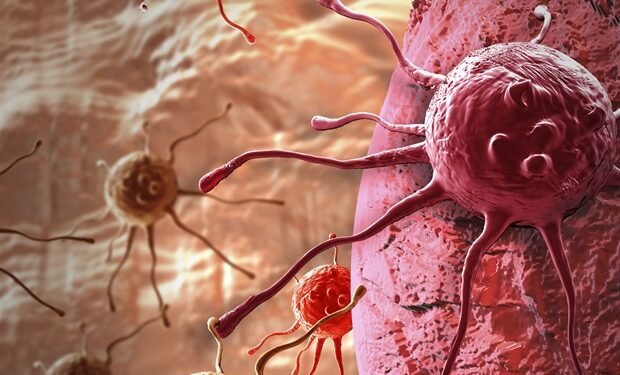
Rice University chemist Carolyn Nichol has won a competitive Science Education Partnership Award (SEPA) from the National Institutes of Health to address race-based cancer health disparities by increasing underrepresented minority student populations’ engagement and participation in biosciences education.
The 5-year, $1,038,544 award will support Nichol’s Cancer Health Activism Network for Greater Equity (CHANGE) project in bringing together cutting-edge cancer research with insight on race-based healthcare disparities from the social sciences in a series of transformative high school biology lessons aligned with both state and national standards.
“Our goal is to affect students’ interest in bioscience careers and studies by working with their teachers,” Nichol said. “We’re recruiting high school biology teachers to do research in university labs working on projects led by faculty at Rice and at Texas Southern University who are Cancer Prevention and Research Institute of Texas (CPRIT) scholars.
“On the one hand, teachers will learn about the latest innovations in cancer research while, on the other hand, they’ll get to hear from researchers in the social sciences about health disparities affecting Blacks ⎯ it’s a two-pronged approach.”
Nichol hopes that time in the lab will be a “transformative experience for teachers, who will return to classrooms feeling empowered and with a renewed sense of leadership:”
The research internships could bring a spark to their teaching. They’ll get hands-on knowledge on topics like CRISPR or epigenetics ⎯ things they may not have learned about when they were in school or that have changed significantly in recent years. They’ll also learn about health disparities issues that disproportionately affect minority Black populations, and ways that we can teach science more holistically and more student-driven versus teacher-driven.”
Carolyn Nichol, Rice University Chemist
In addition to lab work, the first three years of the program will bring together high school science teachers from Houston-area schools with relatively large Black student populations for a series of workshops where participants will work on developing and refining a portfolio of lessons meant to encourage and motivate students to pursue STEM education and career paths.
“It’s one thing to teach a kid who is already interested in biology and wants to learn about the cell cycle and DNA, for instance, and another thing altogether to try to do that for someone who thinks that’s not for them or that they can’t do that,” Nichol said. “For decades, we’ve been trying to bring more underrepresented minorities into STEM, but the numbers really haven’t changed. Moving that needle has just been really hard.
“This approach of showing kids both the exciting parts of science while letting them know that they have a role to play in changing prevalent race-based disparities in healthcare access could really help break that stalemate.”
During the last two years of the program, participating teachers will attend a 4-day professional development workshop held both in-person and virtually where they will get to share their experience and learn about all the activities and lessons developed.
“One of the reasons it’s so powerful to work with teachers is that, according to the Texas Education Agency, each high school teacher works with, on average, 130 students a year,” Nichol said. “So, if there are 187 teachers over the five years of this project, that would impact approximately 25,000 students overall. And, since biology is the only science class that’s required in the state of Texas, we hope to reach kids that might not otherwise self-select to take a science class.”
The program is designed based on a transformational leadership model that cultivates individuals’ strengths and self-worth to drive engagement.
“It’s really about teaching from a positive viewpoint,” Nichol said. “A lot of times when a student walks into a classroom, the teacher looks at their deficits and tries to correct them. Instead, this is an asset-based approach where teachers find positive things to reinforce in the students, build up their self-esteem and help them not feel alienated if they’re different or have different skill sets.
“That’s what this theory is about: It’s this belief that every student has something of value they can bring to the classroom.”
Nichol hopes that a teaching approach based on the transformational leadership theory paired with cutting-edge developments in cancer research and studies on health disparities will engage more students in STEM careers.
“I would like to extend my gratitude to my colleagues in the Rice Office of STEM Engagement for their support,” Nichol said.
Nichol is an associate research professor of chemistry, director of the Rice Office of STEM Engagement and education director for the NSF NanoEnabled Water Treatment (NEWT) Engineering Research Center.









